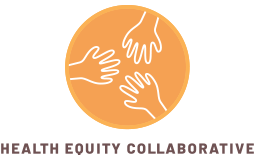07 Jul Coalition Letter: Lawmakers Should Increase SNAP Benefits During the Coronavirus Crisis and Its Aftermath
The Health Equity Collaborative joined Feeding America along with 24 national organizations on a coalition letter to Congressional leadership urging swift action to increase benefits in the Supplemental Nutrition Assistance Program (SNAP) for the duration of the COVID-19 crisis.
See the full letter here or below:
June 30, 2020
The Honorable Mitch McConnell Senate Majority Leader S-230 The Capitol Washington, DC 20510
The Honorable Chuck Schumer Senate Minority Leader S-221 The Capitol Washington, DC 20510
The Honorable Nancy Pelosi Speaker of the House H-222 The Capitol Washington, DC 20515
The Honorable Kevin McCarthy House Republican Leader H-204 The Capitol Washington, DC 20515
Dear Speaker Pelosi and Leaders McConnell, Schumer, and McCarthy:
Thank you for the work you continue to do to ensure America’s families, seniors, and children are healthy and have access to nutritious food. Prior to this pandemic, communities of color have historically had higher barriers to accessing adequate nutrition and public health services. As this pandemic continues, we are seeing that communities of color are being hit hardest, including experiencing higher rates of COVID-19 and unemployment due to the economic downturn. On behalf of the organizations working throughout the country on the front lines serving these families and individuals in need, we respectfully request that you move quickly to increase benefits in the Supplemental Nutrition Assistance Program (SNAP) for the duration of the economic downturn.
SNAP is a critical tool to reduce food insecurity for nearly 40 million Americans, including about 9.8 million African Americans, 6.5 million Hispanics, and 1.2 million Asian Pacific Americans. 1 The program is also the most effective poverty alleviator. The latest estimate by the Census Bureau found that SNAP lifted 3.4 million people out of poverty in 2018 including 1.5 million children. With nearly 30 million Americans filing unemployment benefit claims, 2,3 increasing SNAP purchasing power can help serve as a buffer for families who are at risk of food insecurity and who continue to struggle to make ends meet during this national health crisis and the expected prolonged economic downturn.
While provisions in the Families First Act and the CARES Act temporarily increased SNAP benefits and included additional funding for the program, these efforts have left out nearly 40 percent of SNAP households who already receive the maximum benefit and have no disposable income available to purchase food.4
Specifically, we ask that you consider:
- Increasing the maximum SNAP benefit for all recipients by at least 15 percent to all households for the duration of the economic downturn. This is equivalent to another $25 per person per month, or a little under $100 per month in food assistance for a family of four.
- Increasing the monthly minimum SNAP benefit from $16 to $30 to all households. This will go a long way in helping older Americans, single persons, and family households keep food on the table.
Black, Hispanic, and Asian Pacific American communities have faced increased rates of food insecurity coupled with increased unemployment, further underscoring the need for immediate investment in SNAP. As of April 2020, nearly 2 in 5 Black and Hispanic households with children were food insecure, and as many as 2 in 3 households for some Asian Pacific American communities, compared to more than 1 in 3 of all households with children.5 Additional investments in SNAP would also respond to the immediate needs of communities of color disproportionately impacted by layoffs and furloughs due to stay at home orders across the nation. According to the Bureau of Labor Statistics, the May unemployment rate was 16.8% for Black workers, 17.6% for Hispanic workers, and 15% for Asian Pacific American workers. 6 All people in this country deserve the opportunity to live a healthy life, including access to affordable food. While these communities continue to show resilience during these unsure times by conducting food drives, food shares, and other forms of mutual aid, they cannot do this alone.
The work Congress has done is appreciated, however, more robust action on SNAP is needed to provide relief to communities in need, including Black, Hispanic, and Asian Pacific American communities. For these reasons, we ask that you take immediate steps to increase SNAP benefits for the duration of this economic crisis. Sincerely,
Feeding America
National Urban League
Unidos US
Academy of Nutrition & Dietetics
Alliance to End Hunger
American Academy of Pediatrics
American Public Health Association
Black Mamas Matter Alliance
Boys and Girls Clubs of America
Center of Science for Public Interest
Children’s HealthWatch
Diverse Elders Coalition
The Education Trust
Health Equity Collaborative
Japanese American Citizens League
MANA, A National Latina Organization
Meals on Wheels America
National Caucus and Center on Black Aging, Inc
National Coalition of 100 Black Women, Inc
National Domestic Workers Association
National Hispanic Medical Association
Share Our Strength
Student National Medical Association
United Way Worldwide


